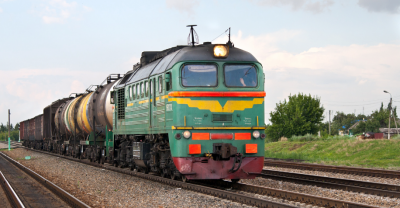The upgrades to the regional rail-freight network will strengthen Victoria’s $4.4 billion grain industry. This Victorian government investment will see more grain moved by rail to both domestic and international markets.
A $181 million funding now makes rail freight efficient and attractive to the industry.
The state’s investment in the regional freight network has enhanced the infrastructure, allowing for heavier trains to operate and unload at Geelong Port. This has been achieved by upgrading the axle-load capacity at critical grain handling sites and by recommissioning the Gheringhap loop near Geelong.
Freight rail exports
The National Data Hub reports Rail freight is essential to Australia’s commodities export which is dominated by iron ore and coal. This represents over 75 percent of Australia’s total rail freight volume by weight.
“Rail freight is expected to peak in 2024, due to the growth of iron ore and coal, before declining gradually to 2037 and plateauing to 2050. This is driven by stagnating global steel production and the increasing share of solar and wind for power generation. Interstate non-bulk rail freight is projected to increase steadily in line with domestic population growth,” reads the report.
This latest investment will improve the efficiency and capacity of grain transport to this vital export point.
Minister for Ports and Freight Melissa Horne says: “Our targeted investments in our regional freight network have given our grain industry the confidence to put more of their grain on trains more often – helping to take more trucks off our roads.”
East coast container service
In November, Aurizon, the largest rail company in Australia, launched an interstate container service.
The company now operates a weekly return service on the Melbourne-Sydney-Brisbane route. The service starts at Melbourne on Wednesdays, connects at Glenlee terminal in Sydney, and continues to the Brisbane Multimodal terminal at the Port of Brisbane for a Friday arrival. The service is anchored by key customer Team Global Express (TGE).
Australian rail freight transport market
Globe Newswire reports that increasing rail investment infrastructure has positively affected the rail freight transport market.
“The construction phase of the mining boom in the past has been a major driver of rail infrastructure investment, which has then been partially sustained by periods of strong extraction-based phases. Australians have significantly increased their desire for a rural lifestyle over the past five years as the trend toward working from home is fuelled by technology and the worldwide pandemic,” reads the report.
In December, Pacific National, Australia’s largest private operator and logistics company, Austrans, announced a partnership to reshape the country’s logistics landscape.
The two companies signed a landmark 10-year contract. This emphasizes both parties’ desire to decarbonize the supply chain by transporting more freight by rail. The companies are investing in technology, equipment, and staff to make this a reality.
Photo Credit: Canva
About the author
Sharl is a qualified journalist. He has over 10 years’ experience in the media industry, including positions as an editor of a magazine and Business Editor of a daily newspaper. Sharl also has experience in logistics specifically operations, where he worked with global food aid organisations distributing food into Africa. Sharl enjoys writing business stories and human interest pieces.











